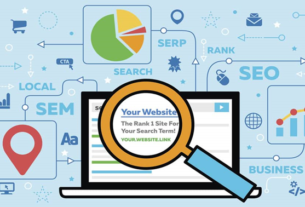Website traffic refers to the number of visitors that come to a website. It is important because more traffic can lead to increased brand awareness, higher sales or conversions, and greater revenue for businesses. Understanding how to increase website traffic through SEO optimization, social media marketing, content creation, and other strategies can help businesses achieve their goals.
Understanding Website Traffic
As a website owner or developer, understanding website traffic is vital to maximizing your site’s potential. Simply put, website traffic refers to the number of visitors your site receives over a given period, which can be measured by various tools such as Google Analytics. However, it’s important to recognize that not all traffic is created equal.
Imagine you own a small business that offers repair services to customers in your town. If you receive a sudden surge in website traffic from people living on the other side of the world who are looking for fishing tips, they will not be useful leads for your business. This kind of traffic may temporarily boost your numbers, but it’s unlikely to result in conversions or sales.
To effectively grow and monetize your website traffic with a Blog, you need to focus on attracting the right audience. This means targeting individuals who are genuinely interested in the products or services you offer, and who are more likely to take action on your site.
There may be some debate about the best types of traffic to prioritize for your business model. For example, some businesses may prioritize simple views and clicks over highly-converting traffic because ad revenue is based solely on an audience’s engagement with ads and not directly related to conversion rates. However, most businesses will find higher converting leads more valuable over time.
Types of Website Traffic
Generally speaking, there are three main types of website traffic: organic, direct, and referral.
Think of organic traffic like planting seeds in fertile soil where visitors find their way through search engines like Google based on relevant content from keyword searches. Direct traffic is made up mainly of users who arrive directly on your website by typing the URL or clicking a bookmark. While referral traffic occurs when visitors click through to your site from other sites such as affiliate websites, online directories, or social media channels.
Organic traffic has proven to be the most valuable of all traffic sources because it signals that people are actively seeking out information and are more likely to take action. Direct traffic may fluctuate based on users’ faithfulness and eventual abandonment of bookmarks, or likelihood to remember URls without them. Referral traffic can be volatile, but healthy referral links continue to provide valuable clicks over the years if set up correctly.
Essential Traffic Optimization Tactics
To increase website traffic in 2023, businesses need to optimize their website by ensuring it loads quickly, utilizing meta descriptions and tags accurately, and building a quality backlink profile. Running your website through optimization tools like GTmetrix or Google PageSpeed Insights can help ensure smooth operation, improve user experience, and increase the likelihood of conversion. However, it’s important to be diligent in the link-building process and work on acquiring backlinks from reputable sources to avoid negatively impacting your site’s authority and decreasing traffic. By implementing these strategies and optimizing every aspect of your website, businesses can improve search engine performance and ultimately attract more visitors.
SEO optimization and keyword use
Optimizing your website for search engines involves properly using relevant keywords throughout your content strategy.
By conducting thorough keyword research, you can uncover topics important to your target audience while identifying effective phrasing for use in blog posts and articles. Tools such as Ahrefs or SEMrush allow for an in-depth analysis of competitor keywords while generating new topic ideas based on historical data.
Including relevant keywords in page titles, H1 tags, and in the body of your content, can strengthen your website’s ability to be discovered in search results. It’s important to avoid overusing keywords, or “keyword stuffing,” as this practice appears spammy and negatively impacts user experience.
While it was once standard practice to include a meta keyword tags on a website, their relevance has diminished significantly. Search engines now place a higher importance on having quality content within a website rather than relying solely on targeted keyword density.
- According to data from SimilarWeb, nearly 60% of all internet access is predominantly on mobile devices, meaning that websites optimized for mobile experience tend to have better chances of increasing traffic.
- A recent study by BrightEdge showed that organic search drives 53% of all site visits making SEO a key factor in boosting website traffic.
- Findings from Adobe’s 2020 Digital Trends report show that companies who are customer journey-focused are twice as likely to outperform their competitors in key performance metrics, highlighting the importance of customer journey optimization in driving web traffic.
Developing an effective content strategy
Content is king and it is the foundation of any successful website. A content strategy involves creating and publishing engaging, high-quality website content on a consistent basis to attract and retain an audience. Effective content strategy will not only increase website traffic but also elevate your brand’s image and reputation.
Consistently producing great content that resonates with your audience can create a sense of community around your brand, encouraging readers to share your content on social media. This can lead to increased referral traffic, which comes from people clicking links on other websites that lead to yours.
To develop a solid content strategy, start by identifying your target audience and their interests. This will enable you to create compelling, informative or entertaining content that addresses their needs. Conducting keyword research and finding out what type of content is performing well in your niche can help generate ideas for fresh topics.
One key factor in developing an effective content strategy is consistency in delivery. It is important to establish a regular posting schedule and stick to it as best as possible. However, some argue that quality trumps quantity, while others say that frequent posts are necessary for maintaining and building an online presence. Ultimately, the answer lies in finding the balance between the two approaches based on the needs of your target market.
Utilizing Links and Referral Traffic
Referral traffic is generated when someone clicks on a link from another website leading them to your site. To increase referral traffic, businesses need to actively seek links from other relevant sites through several methods like guest blogging, linking out to other reputable websites or by creating linkable assets such as infographics or research papers.
For instance, if you’re running a blog about cooking recipes, start by researching food bloggers that have readers with similar interests to your site. You can send in a guest blogging pitch to them, suggesting a relevant topic you know their readers will find valuable and including links to your website for more information.
One of the quickest ways to create valuable backlinks is through social media mentions. Businesses should include share buttons on their website and participate actively with their social media audience, providing occasional promotions or incentives for sharing content. This helps generate high-quality backlinks to your site.
Black hat SEO techniques such as buying backlinks can be tempting, but they can ultimately do more harm than good. Buying low-quality links from unscrupulous sources can lead search engines to penalize your site, even resulting in a full-on banishment from search rankings. Focus on creating quality content and natural link building will come eventually.
Tools for Boosting Website Traffic
In today’s digital era, there are numerous tools available to help businesses increase their website traffic and achieve online success. It can be challenging to choose the right tool to fit your business needs. However, selecting the appropriate tools can be the difference between your website being obscure or becoming a widely recognized brand. Here are some of the best tools for boosting website traffic:
Uber suggest Traffic Checker: A simple and straightforward method for analyzing your website’s traffic data is by using a traffic checker tool.
Google Analytics: If you’re looking for more extensive data analytics, Google Analytics is an excellent option for measuring and interpreting various aspects of website traffic. You can analyze user engagement statistics, track organic and paid acquisition channels, identify website visitor demographics, and much more.
SEMrush: Many businesses swear by SEMrush as a comprehensive tool for improving search engine rankings. Some features include keyword research to optimize website content, discovering backlink opportunities from your competitors’ link profiles, tracking search engine positions for targeted keywords and analyzing competitor ad campaigns.
Yoast SEO: To achieve significant SEO optimization success, businesses should prioritize optimizing each individual page on their website correctly. Yoast SEO offers an all-in-one plugin system that guides you through optimization goals like metadata descriptions, image optimization, and readability analysis and helps prevent duplicate copies of content from being published on your site unintentionally.
Ultimately, utilizing a combination of these popular traffic-boosting tools is likely the most effective way to maximize web traffic quickly and efficiently. Understanding different sources of web traffic coupled with careful execution of relevant SEO strategies will streamline your current site visitor conversions while creating new potential consumers. Use these tools wisely, and you will find your website becoming more popular than ever before.




